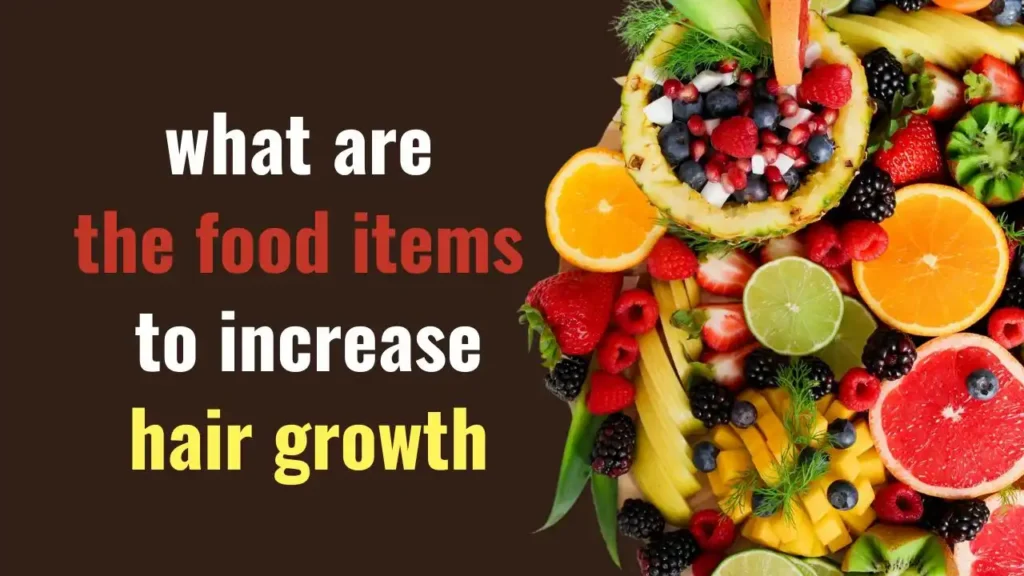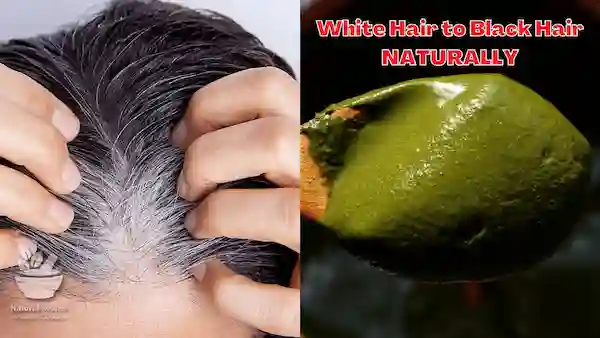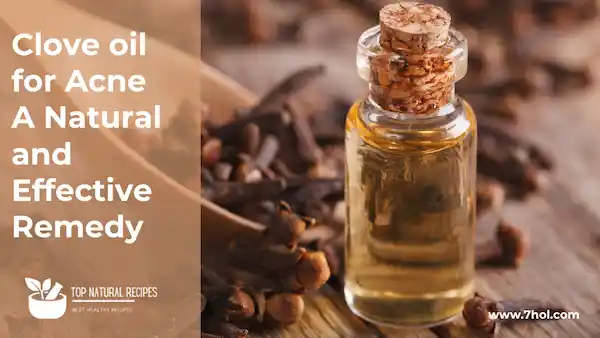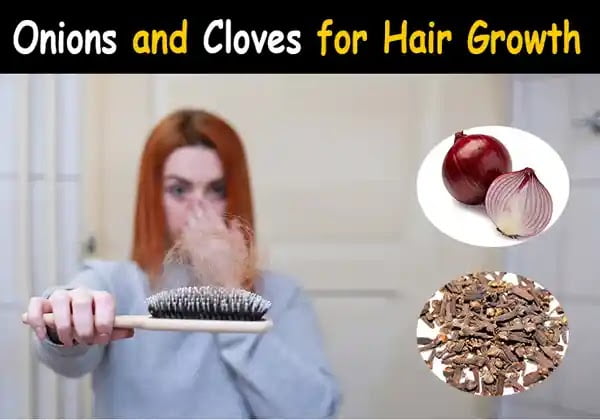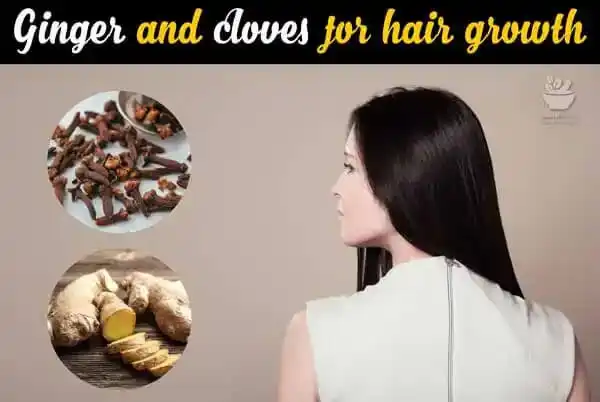Hair health is a significant aspect of overall well-being, and the role of diet in maintaining healthy hair cannot be overstated. While many factors contribute to hair growth, including genetics and environmental influences, nutrition plays a crucial role. Our diet affects every cell in our body, including hair follicles. This article will delve into various food items that promote hair growth, emphasizing the importance of a balanced diet for maintaining luscious, healthy hair.
Healthy hair growth requires a consistent supply of nutrients. Just like our bodies, our hair needs fuel to grow. Without the right nutrients, our hair may become dry, brittle, and prone to breakage. A nutrient-rich diet is essential for hair strength, thickness, and growth. This article will guide you through the best food items to include in your diet for optimal hair health.

Section 1: The Connection Between Diet and Hair Growth
Explanation of How Nutrition Affects Hair Growth
Hair follicles are among the most metabolically active in the body, and like any other body part, they require adequate nutrients to function correctly. Each strand of hair consists of cells that contain a protein called keratin. These cells need nutrients to produce healthy hair. A deficiency in essential nutrients can lead to hair loss, thinning, and other hair-related problems. Proper nutrition ensures that hair follicles receive the necessary vitamins and minerals to remain healthy and promote growth.
The lifecycle of a hair follicle consists of three phases: anagen (growth phase), catagen (transition phase), and telogen (resting phase). Nutrition impacts all these stages. During the anagen phase, the hair follicle is actively growing, and this phase can last several years. The duration of the anagen phase is genetically determined, but it can be influenced by overall health and nutrition. A nutrient-rich diet can prolong the anagen phase, leading to longer and thicker hair.
Importance of Vitamins and Minerals for Hair Health
Several vitamins and minerals are vital for hair health. For instance, vitamins A, C, D, and E, as well as zinc, iron, and omega-3 fatty acids, play critical roles in hair growth and maintenance. These nutrients help in cell regeneration, collagen production, and maintaining the health of the scalp and hair follicles.
- Vitamin A: Necessary for cell growth, including hair cells. It also helps in the production of sebum, an oily substance that keeps the scalp healthy.
- Vitamin C: Important for collagen production, which strengthens hair. It also helps in the absorption of iron.
- Vitamin D: Essential for hair follicle cycling and can help create new follicles.
- Vitamin E: Acts as an antioxidant, protecting cells from oxidative stress. It also improves scalp circulation.
- Iron: Carries oxygen to hair follicles, promoting growth. A deficiency can lead to hair loss.
- Zinc: Plays a role in hair tissue growth and repair. It also keeps the oil glands around hair follicles working properly.
- Omega-3 Fatty Acids: Nourish the hair, support thickening, and reduce inflammation of the scalp, which can cause hair shedding.
Keywords: diet and hair growth, nutrition for hair health
Section 2: Top Food Items to Increase Hair Growth
Subsection 1: Protein-Rich Foods
Importance of Protein for Hair Growth
Protein is the building block of hair. Hair strands are primarily composed of a protein called keratin. A diet deficient in protein can lead to weakened hair structure and slow growth. Consuming enough protein is crucial as it ensures that hair follicles have the necessary resources to grow. When the body does not get enough protein, it prioritizes vital organs over hair, leading to hair loss or reduced hair growth.
Examples of Protein-Rich Foods
- Eggs: Packed with biotin and protein, eggs are essential for hair growth. Biotin is a B vitamin necessary for keratin production. Eggs also contain zinc, selenium, and other hair-healthy nutrients.
- Lean Meats: Chicken and turkey are excellent sources of high-quality protein. They provide essential amino acids that help in the production of keratin.
- Fish: Rich in omega-3 fatty acids and protein, fish like salmon can boost hair health. Omega-3s keep the scalp hydrated and reduce inflammation.
- Legumes: Beans and lentils provide plant-based protein and iron, essential for hair growth. They are also rich in biotin and zinc.
Keywords: protein for hair growth, best proteins for hair health
Subsection 2: Iron-Rich Foods
Role of Iron in Preventing Hair Loss
Iron helps red blood cells carry oxygen to the cells, including hair follicles. Iron deficiency can lead to anemia, a significant cause of hair loss. Adequate iron levels ensure that hair follicles get enough oxygen to support their growth and maintenance. Women, in particular, are prone to iron deficiency due to menstruation and should ensure their diet includes sufficient iron.
Examples of Iron-Rich Foods
- Spinach: A great source of iron, vitamins A and C, and protein. Spinach also contains sebum, which acts as a natural conditioner for hair.
- Lentils: Packed with iron and protein, ideal for vegetarians. They also provide folic acid, which is necessary for the health of red blood cells.
- Red Meat: Provides heme iron, which is easily absorbed by the body. Red meat also supplies vitamin B12, which helps in the production of red blood cells.
Keywords: iron for hair growth, iron-rich foods for hair
Subsection 3: Vitamin A-Rich Foods
Benefits of Vitamin A for Scalp Health
Vitamin A is essential for the production of sebum, which keeps the scalp moisturized and healthy. Sebum helps prevent hair from drying out and breaking. A lack of vitamin A can lead to dry and itchy scalp. Vitamin A also plays a role in cell growth, which is crucial for hair growth.
Examples of Vitamin A-Rich Foods
- Carrots: High in beta-carotene, which converts to vitamin A. Carrots also contain antioxidants that can help protect hair from damage.
- Sweet Potatoes: Another excellent source of beta-carotene. They also provide vitamin C and manganese.
- Kale: A nutrient-dense leafy green packed with vitamin A. Kale is also rich in vitamins C and K.
Keywords: vitamin A for hair growth, foods with vitamin A for hair
Subsection 4: Vitamin C-Rich Foods
Importance of Vitamin C for Collagen Production
Vitamin C is crucial for collagen production, a protein that helps in strengthening hair. Collagen is a structural protein that makes up much of the body’s connective tissues, including hair. Vitamin C also aids in the absorption of iron, ensuring that hair follicles receive enough oxygen.
Examples of Vitamin C-Rich Foods
- Citrus Fruits: Oranges, lemons, and grapefruits are excellent sources. They provide antioxidants that protect hair follicles from damage.
- Strawberries: High in vitamin C and antioxidants. Strawberries also contain silica, which can help prevent baldness and stimulate hair growth.
- Bell Peppers: Provide more vitamin C than oranges. Bell peppers also contain vitamins A and B6, which are beneficial for hair health.
Keywords: vitamin C for hair growth, foods high in vitamin C
Subsection 5: Omega-3 Fatty Acids
Benefits of Omega-3s for Hair Density and Shine
Omega-3 fatty acids nourish the hair and support thickening. They also add shine and elasticity to hair strands. Omega-3s reduce inflammation, which can contribute to hair loss, and promote a healthy scalp, which is vital for hair growth.
Examples of Foods Rich in Omega-3 Fatty Acids
- Salmon: A great source of omega-3s and protein. Salmon also provides vitamin D, which is linked to hair follicle health.
- Flaxseeds: Plant-based omega-3 fatty acids. Flaxseeds are also rich in fiber and antioxidants.
- Walnuts: Provide omega-3s, biotin, and vitamin E. Walnuts also contain copper, which helps maintain the hair’s natural color and luster.
Keywords: omega-3 for hair growth, foods with omega-3 for hair
Subsection 6: Zinc-Rich Foods
Role of Zinc in Hair Repair and Growth
Zinc helps in repairing damaged hair and maintaining oil glands around follicles. A deficiency can lead to hair loss and poor hair growth. Zinc plays a crucial role in DNA and RNA production, which is essential for the division of hair follicle cells leading to healthier hair growth.
Examples of Zinc-Rich Foods
- Pumpkin Seeds: High in zinc and antioxidants. Pumpkin seeds also provide iron and magnesium, which are essential for hair health.
- Chickpeas: Provide zinc and protein. Chickpeas also contain vitamins B6 and B9, which are important for hair growth.
- Oysters: One of the best sources of zinc. Oysters also provide protein, iron, and omega-3 fatty acids.
Keywords: zinc for hair growth, zinc-rich foods for hair
Subsection 7: Biotin-Rich Foods
Importance of Biotin for Hair Strength
Biotin, a B vitamin, is crucial for hair growth and strength. A deficiency can lead to hair thinning and loss. Biotin helps in the production of keratin, the protein that makes up hair. It also supports the health of hair follicles.
Examples of Biotin-Rich Foods
- Nuts and Seeds: Almonds, walnuts, and sunflower seeds are excellent sources. These foods also provide healthy fats and vitamin E.
- Whole Grains: Provide biotin, fiber, and essential nutrients. Whole grains also support overall health, which is beneficial for hair growth.
- Eggs: Rich in biotin and protein. Eggs also contain vitamins A, D, and E.
Keywords: biotin for hair growth, biotin-rich foods for hair
Section 3: Additional Tips for a Hair-Healthy Diet
Balanced Diet Considerations
Incorporate a variety of nutrient-dense foods to ensure all essential vitamins and minerals are consumed. A balanced diet supports overall health, which directly impacts hair growth. It’s important to have a diet that includes proteins, healthy fats, carbohydrates, vitamins, and minerals. Each of these food groups plays a role in maintaining hair health.
Hydration and Its Importance
Drinking plenty of water keeps the scalp hydrated and supports the delivery of nutrients to hair follicles. Aim for at least 8 glasses of water a day. Dehydration can lead to dry and brittle hair, which is more prone to breakage. Proper hydration ensures that hair cells can function optimally.
Limiting Processed Foods and Sugars
Processed foods and high sugar intake can lead to inflammation and hormonal imbalances, negatively affecting hair health. Focus on whole, natural foods. Avoiding excessive consumption of sugary snacks, sodas, and fast food can help maintain the health of your hair.
Keywords: healthy diet for hair growth, balanced diet for hair health
Section 4: Real-Life Success Stories
Testimonials and Success Stories from People Who Improved Their Hair Growth Through Diet
Sharing real-life success stories can inspire and motivate readers to adopt a hair-healthy diet. Include testimonials from individuals who have seen significant improvements in their hair growth by incorporating the mentioned foods. These stories can provide tangible evidence of the benefits of a nutritious diet for hair health.
- Success Story 1: Jane Doe, a 30-year-old woman, experienced significant hair thinning in her late twenties. After incorporating more protein and iron-rich foods into her diet, she noticed her hair becoming thicker and stronger within six months. Jane credits her new diet for her revitalized hair health.
- Success Story 2: John Smith struggled with dry and brittle hair. After adding omega-3 fatty acids and vitamin C-rich foods to his meals, John saw a noticeable improvement in his hair’s shine and strength. His hair also grew faster and appeared healthier.
- Success Story 3: Maria Lopez dealt with hair loss due to a zinc deficiency. By consuming more zinc-rich foods like pumpkin seeds and chickpeas, Maria’s hair loss decreased significantly, and she began to see new hair growth within a few months.
Keywords: hair growth success stories, real-life diet for hair growth
Section 5: Frequently Asked Questions (FAQs)
Common Questions About Diet and Hair Growth
Provide quick and informative answers to common questions such as:
- How long does it take to see results from dietary changes? It varies from person to person, but generally, you can start seeing improvements in hair health within 3 to 6 months of making dietary changes.
- Can supplements replace a healthy diet? While supplements can help fill nutritional gaps, they should not replace a balanced diet. Whole foods provide a wide range of nutrients that work together to promote hair health.
- What are the signs of nutrient deficiencies affecting hair? Common signs include hair thinning, increased hair loss, dry and brittle hair, and slow hair growth. If you suspect a nutrient deficiency, it’s best to consult a healthcare professional.
Keywords: FAQs about hair growth diet, common questions about hair growth foods
Conclusion
Recap of the Importance of a Healthy Diet for Hair Growth
Reiterate the key points discussed in the article, emphasizing how essential a balanced diet is for promoting hair growth and maintaining overall hair health. Highlight the importance of including protein, iron, vitamins A, C, D, and E, zinc, omega-3 fatty acids, and biotin in the diet for optimal hair growth.
Encouragement to Incorporate the Mentioned Foods into Daily Meals
Encourage readers to start incorporating the mentioned foods into their daily meals to see noticeable improvements in their hair growth. A healthy diet not only supports hair health but also enhances overall well-being.
Keywords: foods to promote hair growth, diet tips for healthy hair
Call to Action
Invite readers to share their experiences with these foods in the comments section or on social media. Encourage them to share the article with others who might benefit from these hair growth tips. Remind readers that patience and consistency are key, as changes in diet take time to reflect in hair health.
By following the guidelines provided in this article, readers can embark on a journey towards healthier, stronger, and more vibrant hair.
